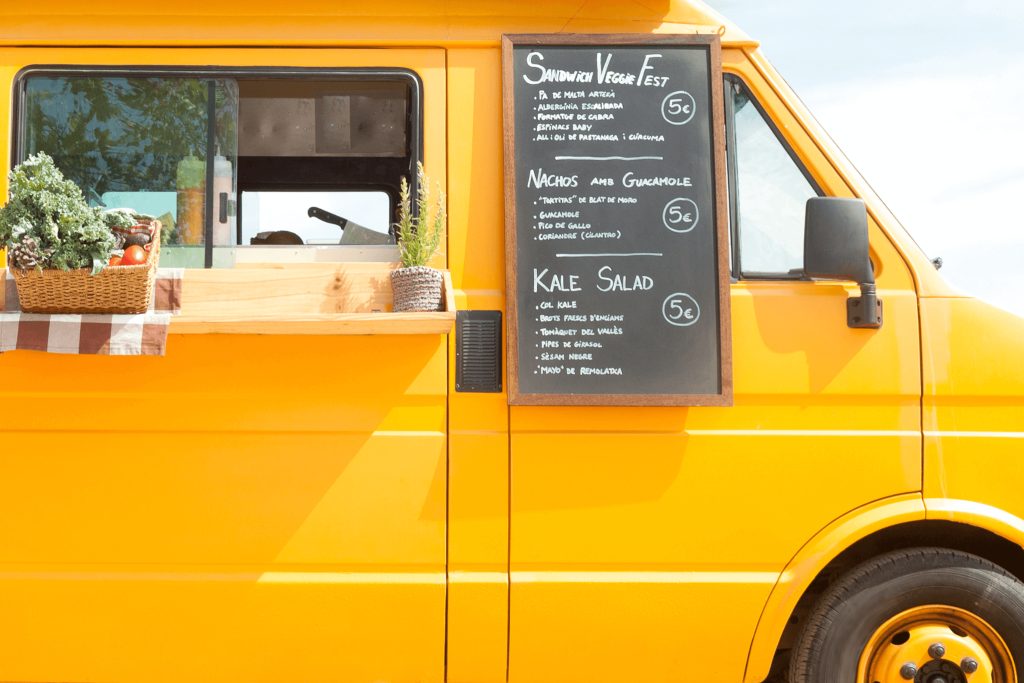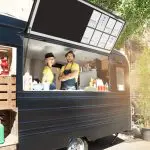In the last few years, we’ve seen a notable increase in the number of food truck businesses, trailers, and other street food vendors out and about.
With less security coming from owning brick-and-mortar restaurants, more and more people are opting to make their food businesses mobile.
Want to skip ahead?
- Speed over quality
- Pre-workday checks
- Gas safety
- Equipment working
- Drive carefully
- Legal requirements
- Check your resources
- Thinking about money
- The generator
- Your vehicles engine
Whether you’re new to the idea of running a food truck, or have just got a fully-equipped trailer. Or are you an experienced chef looking to diversify your business?
You need to know not only how to set up and run your street food business, but also how to avoid costly mistakes that can put you out of business.
As a new business owner, it’s often easy to become bombarded with tips and tricks on how to succeed. But it’s often more helpful to learn from other’s mistakes.
Today, we’re going to share 10 things you must avoid doing if you want to run a successful street food business. These don’ts can also be considered when looking at your food business risk assessment.
10 Don’ts of Running a Street Food Business
1. Don’t Aim for Speed Over Quality
There’s nothing more exciting than the first time you see a long line of people waiting to buy food from your business, but you’ve also got to be careful. That long line of people will put pressure on them. Often causing you (or your employees, if you have them) to start trying to go as fast as they can. Learning to prepare food well at speed is a skill and one you can’t learn overnight.
Even under pressure, you’ve got to keep paying attention to how your food is being handled, prepped, and cooked. Not only is the experience you offer customers paramount. But overcooking your food could lead to wasted ingredients and time. And undercooked ingredients could make a customer unwell.
Instead of trying to do ten things at once, focus on one thing at a time or, if you have team members, delegate tasks. That way, you’re more likely to get everything done in time without making errors!
2. Don’t Skip Pre-Workday Checks
Not checking that every piece of equipment is functioning correctly every time you head out on the road can lose you a whole day of business – this goes double for events. If you’re able to check every piece of equipment before you leave.
You can eliminate any hiccups along the way by replacing or fixing them early in the day.
Losing a day’s earnings is one thing, but being unable to deliver at an important event. Such as someone’s wedding or a branded event, can be disastrous for the short and long-term success of your business. And on your list of street food business don’ts
3. Don’t Neglect Gas Safety
Having a street food business means travelling with or handling a propane tank. If that gas canister isn’t properly sealed it can ruin your food, and be a serious waste of resources. And even pose a risk of harming people if it explodes.
4. Don’t Assume Everything is in Working Order Just Because it Works
Whether your food truck business or trailer is brand new or something you bought second-hand. Don’t assume that there are no potential problems just because everything turns on and cooks. You need to regularly check all your electrical elements like fryers, fridges, and ovens, as well as gas lines. Put it on your calendar.
If these minor problems go unchecked, you run the risk of a fire starting on board your truck. Which, for obvious reasons, would be dangerous and potentially disastrous to your business. If you hire an electrician to rewire anything, make sure they are licensed, insured, and trusted. No financial saving is worth putting your safety and livelihood at risk.
5. Don’t Drive Like You Don’t Care
We get it – you need to get somewhere on time or you’re doing the same journey you’ve done a thousand times, but you need to pay extra attention to your driving when you’re in your truck or pulling your trailer. There are two major reasons why:
- Even if you don’t have logos visible on your truck or trailer when it’s closed up, people will recognise you. You will be viewed as a part of the community, and if you’re driving badly, people will notice and talk about it.
- If you have an accident, it can be financially difficult to revive your business, because even if your insurance covers it, you will be “out of business”. One way or another, for weeks or months until it gets sorted.
Stick to the speed limits and take a little extra care when navigating built-up areas.
More Food Truck Business Don’ts
6. Don’t Ignore Legal Requirements
You can’t just pull up anywhere and open up for business – you need permission to do so in the majority of places. Either from the council or the landowner. A little research before you go to any new location can save you a lot of time, effort, and money. Also, make sure you’ve got your UK Street Vendor License before you start serving anyone, or you may get fined.
7. Don’t Forget to Check Your Resources
After every journey, you should be taking inventory of utensils, plates, cutlery, containers paper bags, sachets of seasoning, and so on. So you know if you need to get more before you start working the next day.
You might have a fair idea of how much food you’ll sell on any given day. But some customers might ask for extra of each thing. So it’s always important to have extra to avoid missing out on customers later in the day. To number 8 on the food truck business don’ts.
8. Don’t Head Out Without Thinking Money
If you are serving an office lunch crowd, most are going to only have their cards (or even phones with them to pay), so having a way for them to pay digitally is a must. Conversely, think about if you’re going to a cash-heavy event and if you have enough change to keep you going through the day.
Make sure you have some smaller dominion with you so you don’t have to either force someone to pay with their card or have them walk away because you can’t break their £20 note. While it may seem like a minor thing to you, in the right circumstances, it could lose you a lot of business.
9. Don’t Neglect Your Food Truck Business Generator
As a business that relies entirely on generators, you must check it before you head off on the road. Without a fully functioning generator, your vehicle won’t work properly, your food will likely not keep, and you’ll lose a whole day’s worth of business. Maintain it properly so you can rely on it.
10. Don’t Forget Your Vehicle’s Engine
You should also be checking that your fluids are topped up and your engine is in good condition at least every three months. While your focus may be on the equipment in your truck or trailer, your vehicle’s engine, so the wear and tear is worth monitoring if you don’t want any last-minute surprises. While you’re at it, check brakes and tyres, too.
Most of this list consists of simple checks that may feel tedious now but can save a lot of frustration in the long run. The key to avoiding these mistakes lies largely in being organised, so create as many lists as you need, plan ahead, and account for any situation you can think of if you want your street food business to be a success.
Great food service is about more than just cooking delicious meals; it also entails proper budgeting, time management, interpersonal communication, and effective organisation.




















